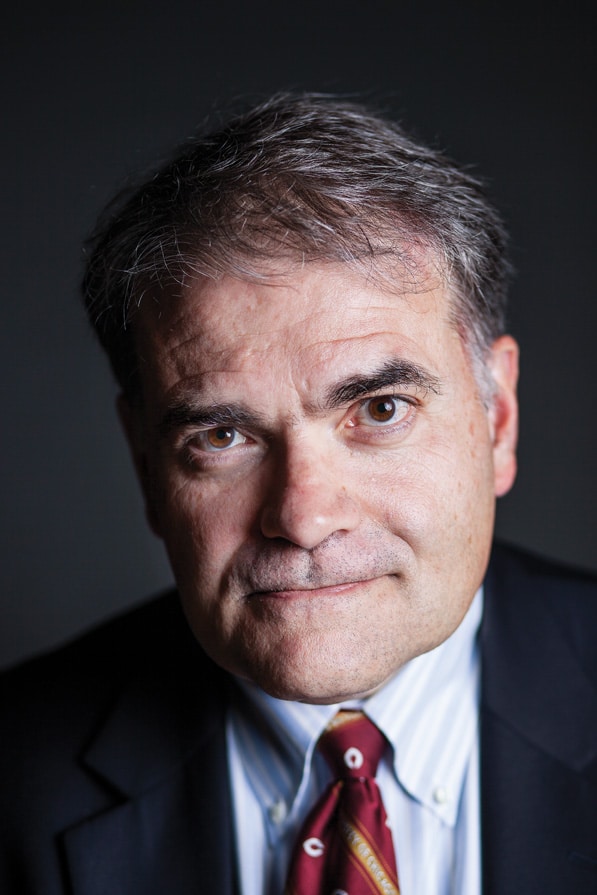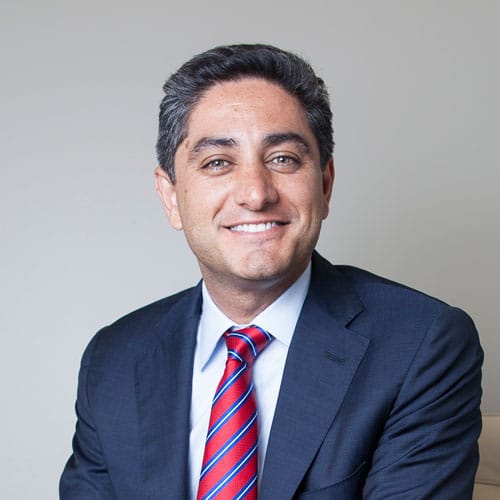As an immigrant, Eduardo Vidal has a high appetite and tolerance for risk. He’s willing to take on new challenges when appropriate—without being reckless. His parents did so when they immigrated to America from Cuba in 1966 when Vidal was nine years old. And Vidal has been defining his career with calculated risks since the 1980s.

Having grown up in Chicago, Vidal didn’t have to go far to get a prestigious education or earn his law degree from the University of Chicago. After graduation he worked in corporate finance at a law firm in Chicago for five years.
In 1986 leveraged buy-outs were booming in New York, so Vidal packed a bag. Then in 1990 he made partner at a New York law firm and started working in the burgeoning corporate finance space of cross-border transactions with companies in Latin America. For the next 22 years that industry saw him through economic security (putting two kids through college without debt), but by 2012, the corporate finance work in Latin America had petered out. Being empty-nesters, Vidal and his wife decided to look for a new career opportunity in what Vidal considers the most dynamic business city in the Americas: Houston.
While Wall Street has been contracting, Houston’s business community is open and welcoming. Many groups facilitate networking, and the city welcomes newcomers. It is a global hub for the energy, medical care, transportation, and support industries. Last year the Port of Houston exported products worth more than any other port in North America, including the Ports of New York and New Jersey.
Shortly after arriving in the Lone Star state in the spring of 2012, Vidal got a phone call from a former client based in Miami. It was an idea for a business venture perfect for Vidal, who had become involved in the outsourcing industry. The client wanted to start a business process outsourcing (BPO) company, (which includes call centers, technical support, and back-office paperwork) and needed a general counsel. The company would contract with customers and subcontract to suppliers all around the world, allowing customers to focus on their core competences and get their supporting work done on a cost-efficient basis. By decreasing operating expenses and increasing cash flow, it would enhance the internal rate of return (IRR) on capital investments.
IRR Strategies, LLC was formed that year to provide global solutions for BPO services to small and medium-sized enterprises, private equity, and venture capital. Vidal has been leading legal for IRR ever since. When operations began in the summer of 2013, the company received requests for legal process outsourcing (LPO), which includes electronic discovery, document review, and contract management service. Another division of the company was born.
LPO in particular is here to stay and will continue to grow—especially for small and medium-sized law firms and corporate law departments. “It is a force multiplier,” says Vidal, “promising to fundamentally transform the practice of law.”
Upon moving from private to corporate counsel, Vidal was surprised when most of his law firm colleagues did not react negatively but instead asked about entrepreneurial opportunities with corporate clients. Working in-house gives lawyers an opportunity to serve not only as legal advisers to corporate clients, but also as corporate executives implementing business solutions. “Given the slowdown in corporate and transactional legal work since the financial crisis of 2008,” says Vidal “the balance of power has shifted from law firm partners to general counsel and other corporate counsel.” Corporate clients are all doing fewer transactions and generating less work, so the law firm partners find themselves in a more competitive situation. And corporate clients are looking to get their work done in a more cost-efficient manner, certainly more so than they had during the corporate transactional boom from 1982 to 2007.
Vidal is confident his move to general counsel and business executive allows him to adapt successfully to the changing nature of corporate law practice. “Houston is the best city to have made this transition, and we look forward to continuing to work and avoiding retirement,” he laughs.

